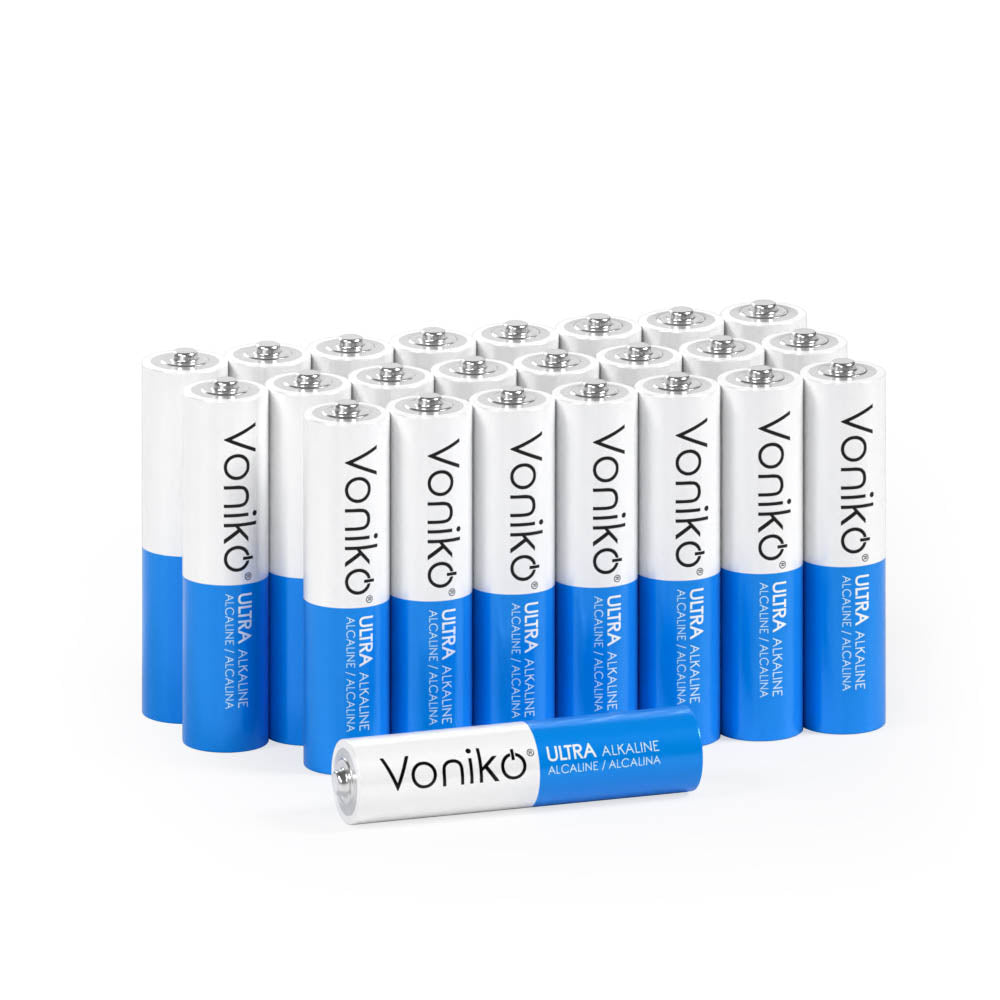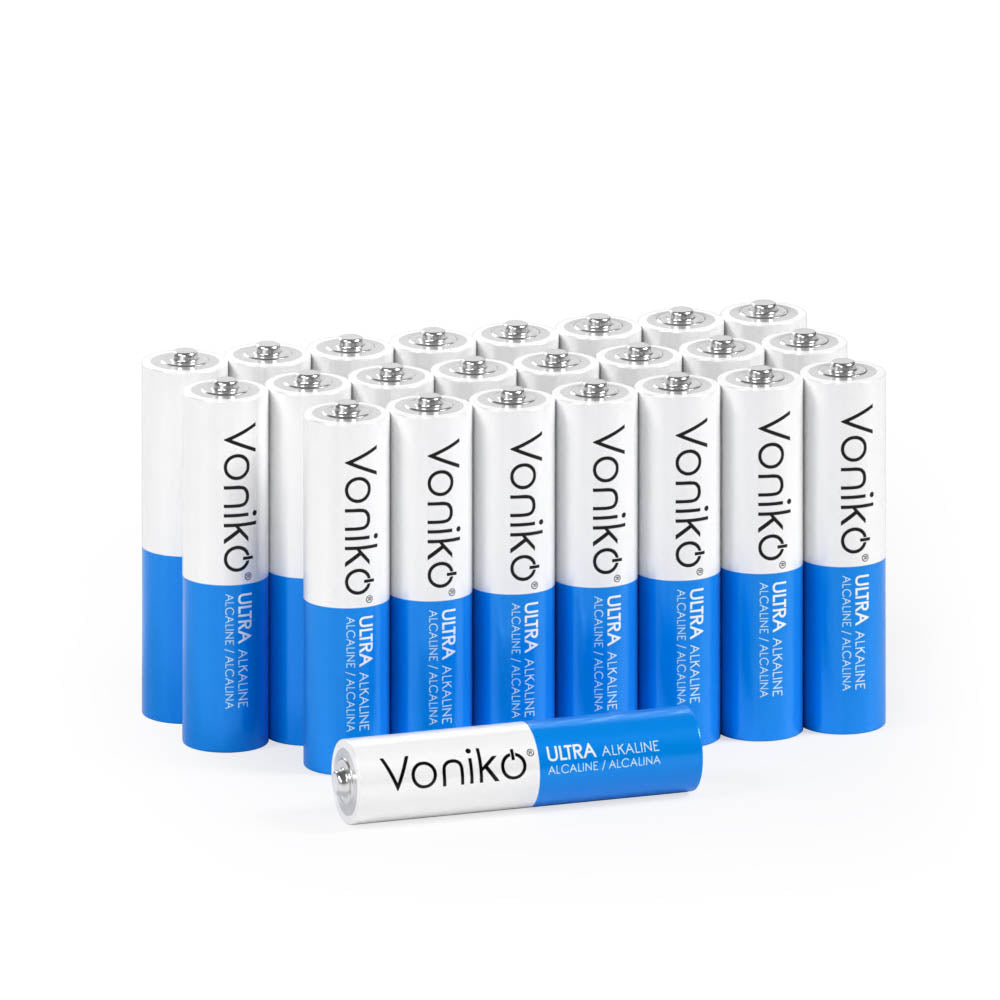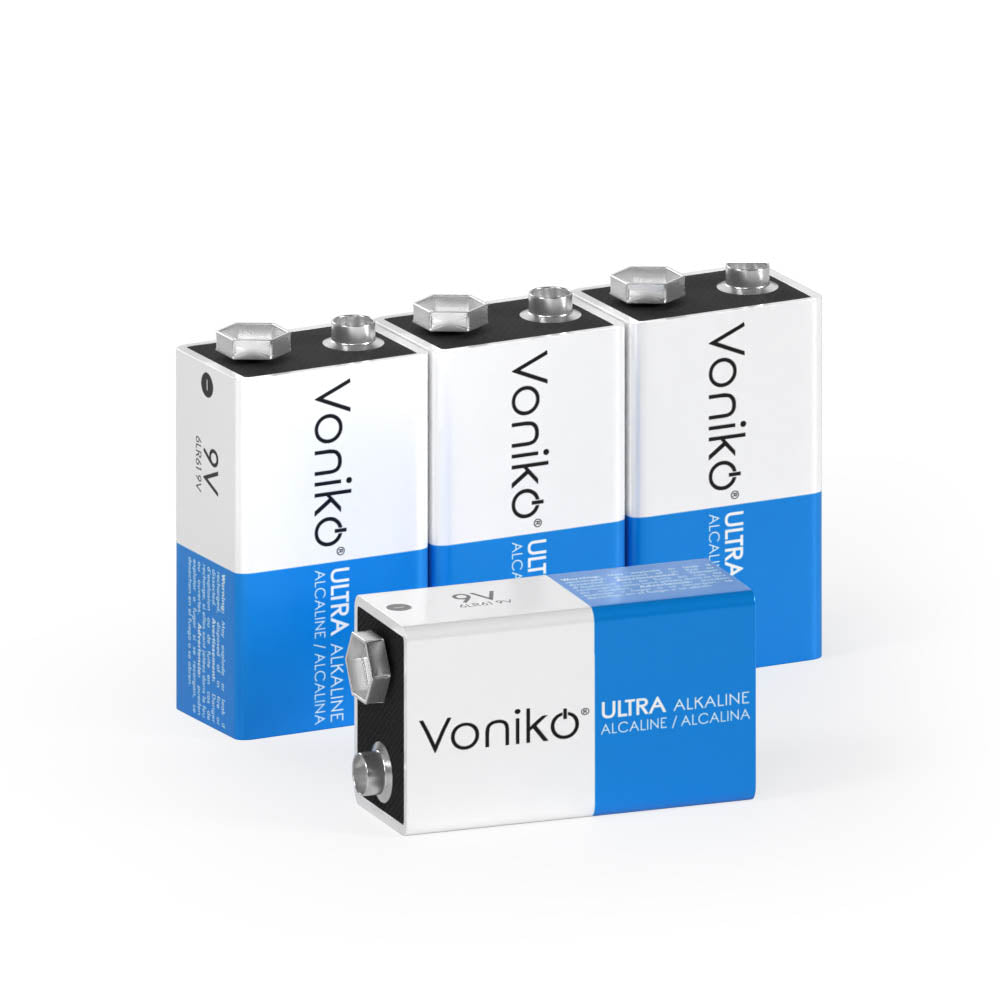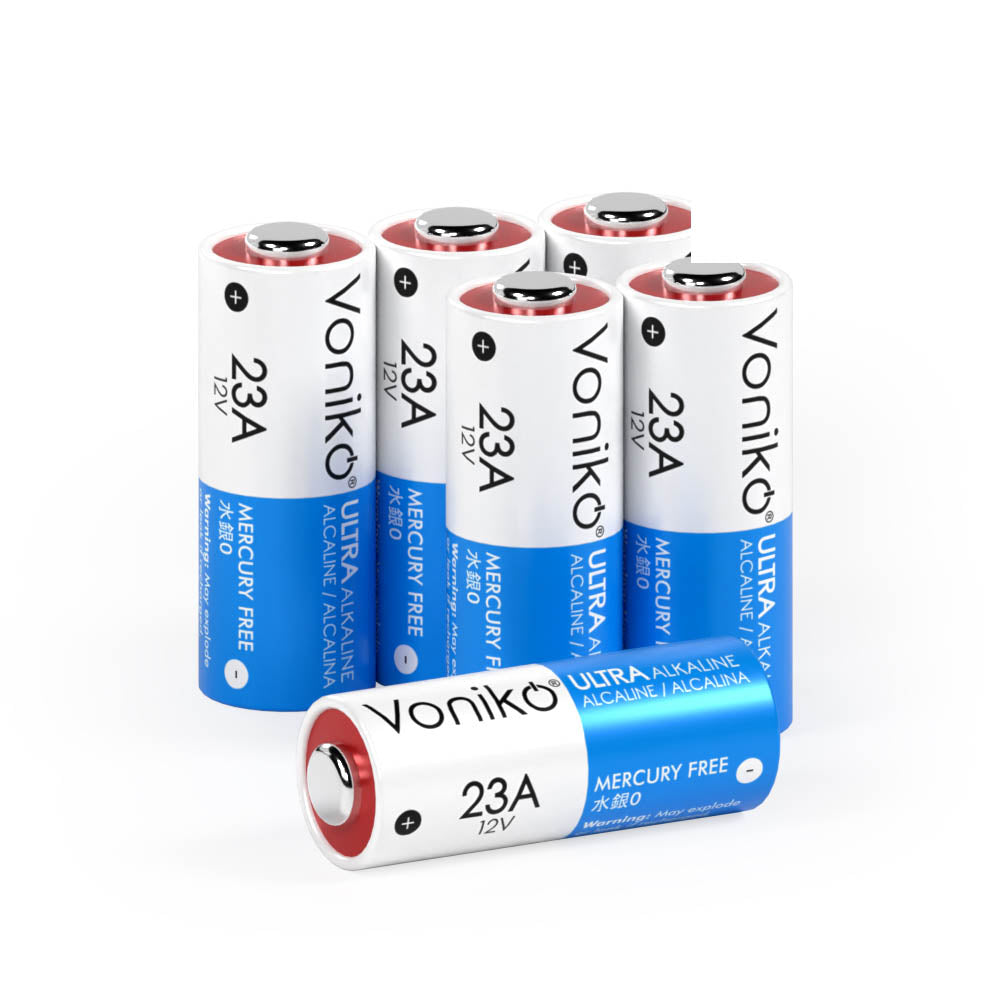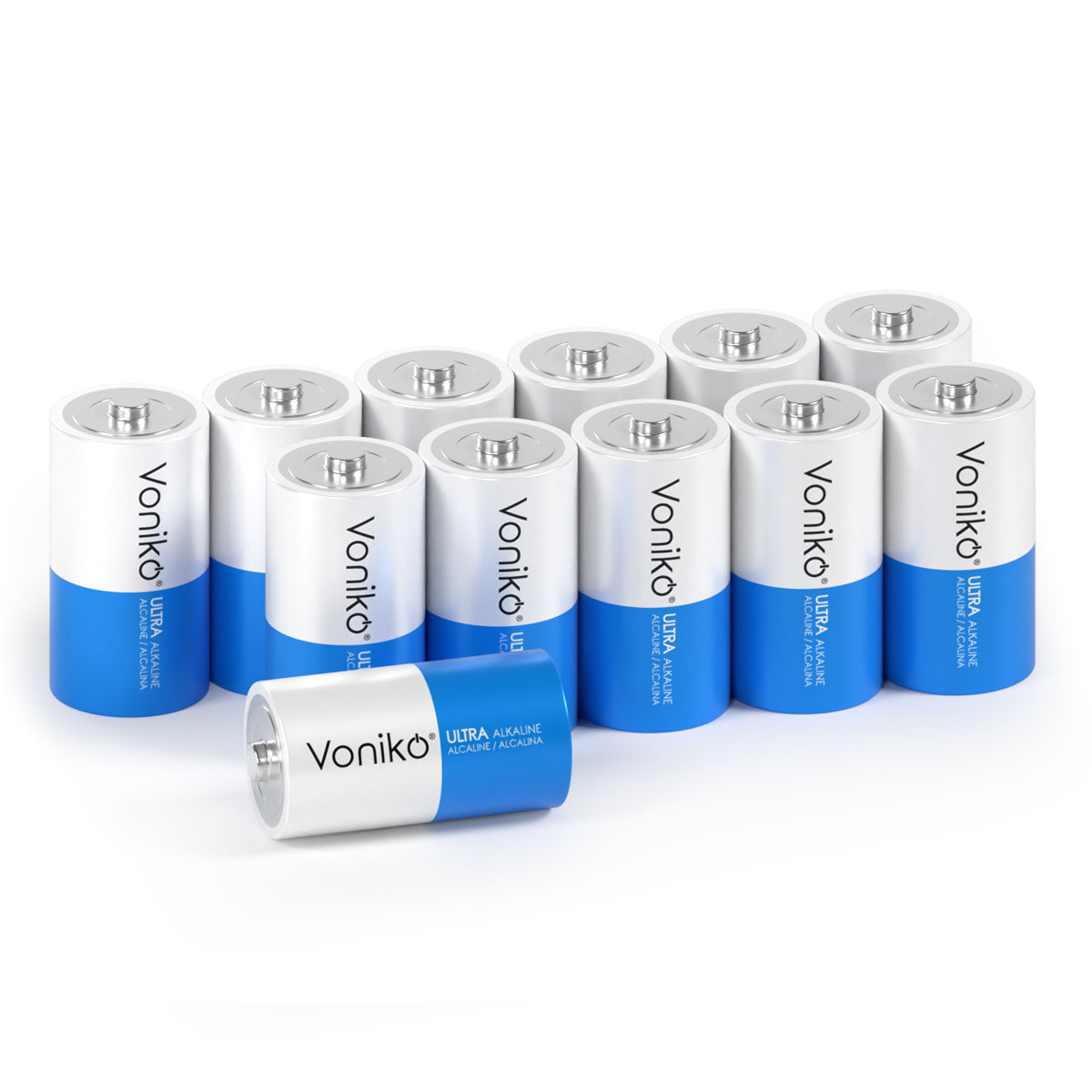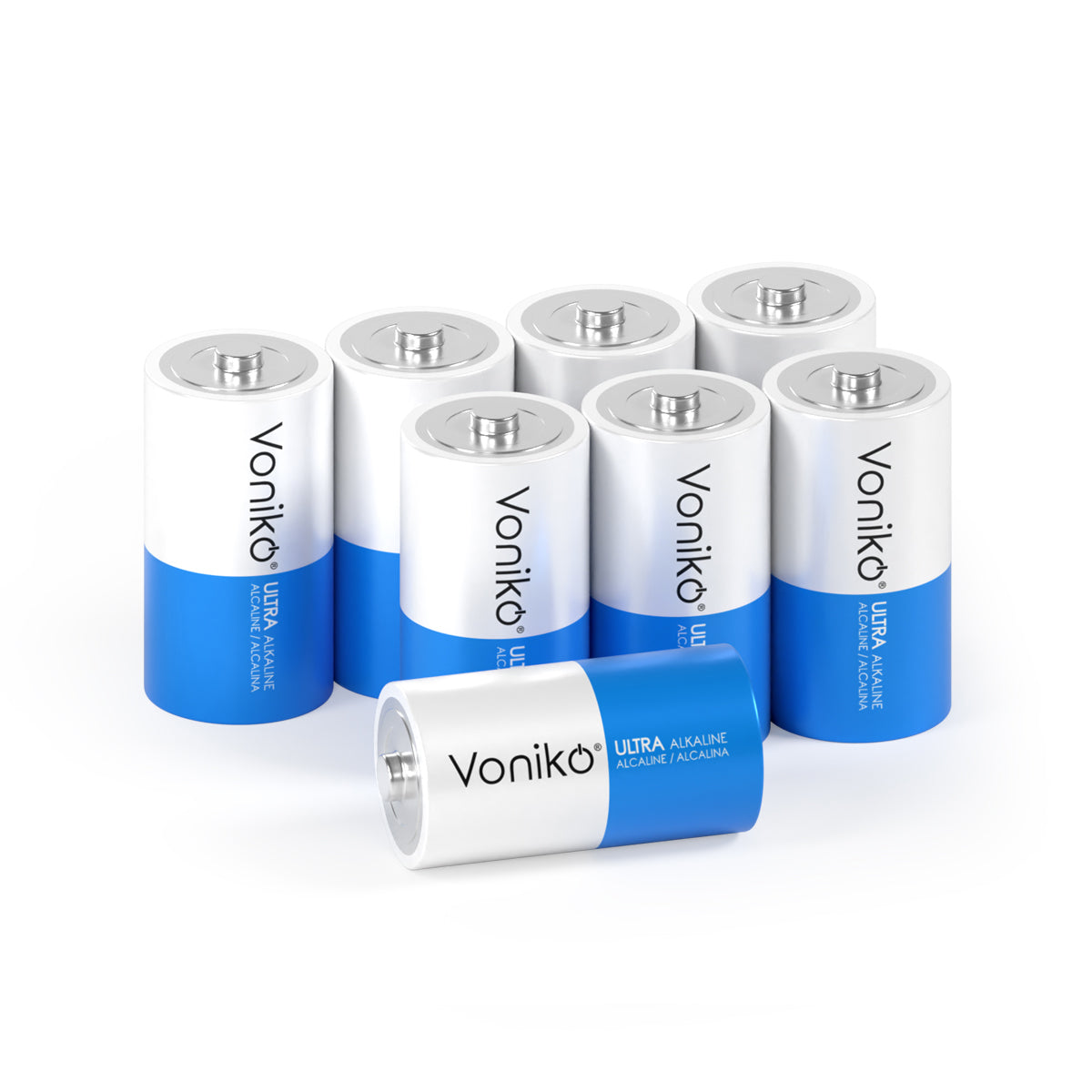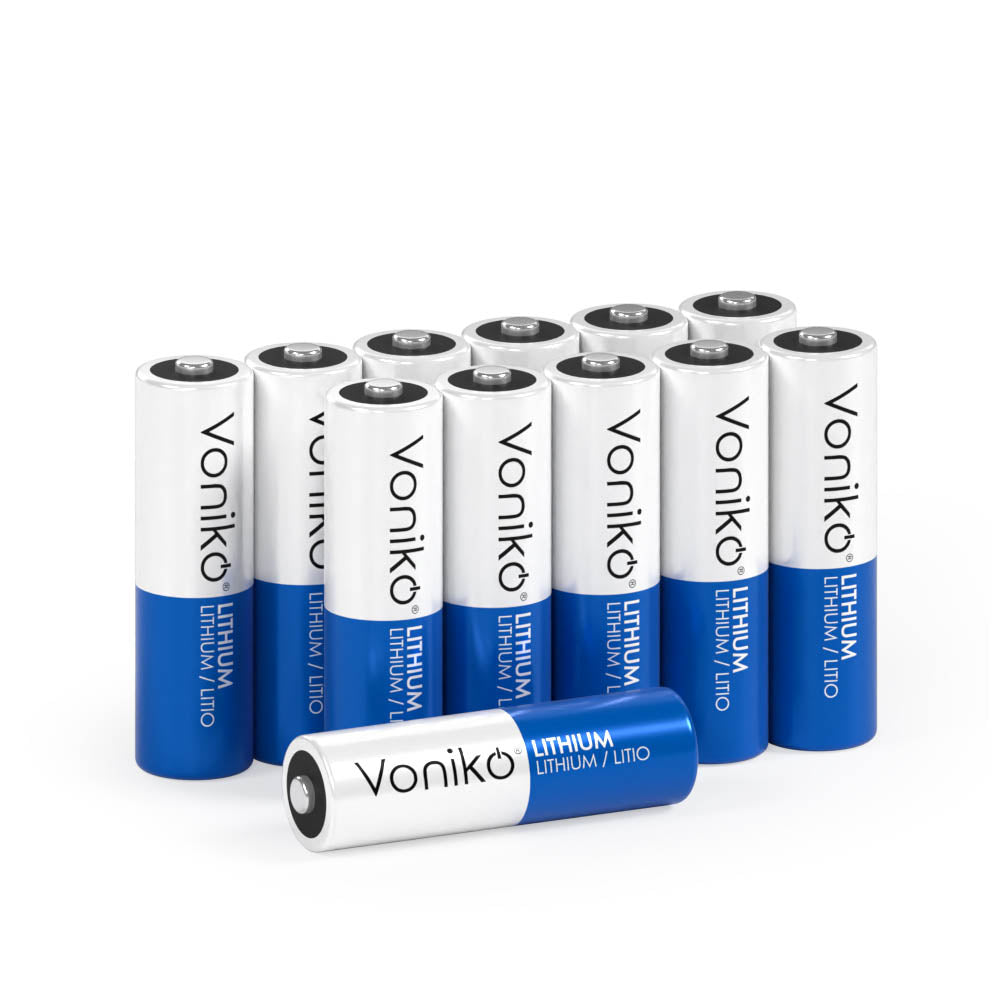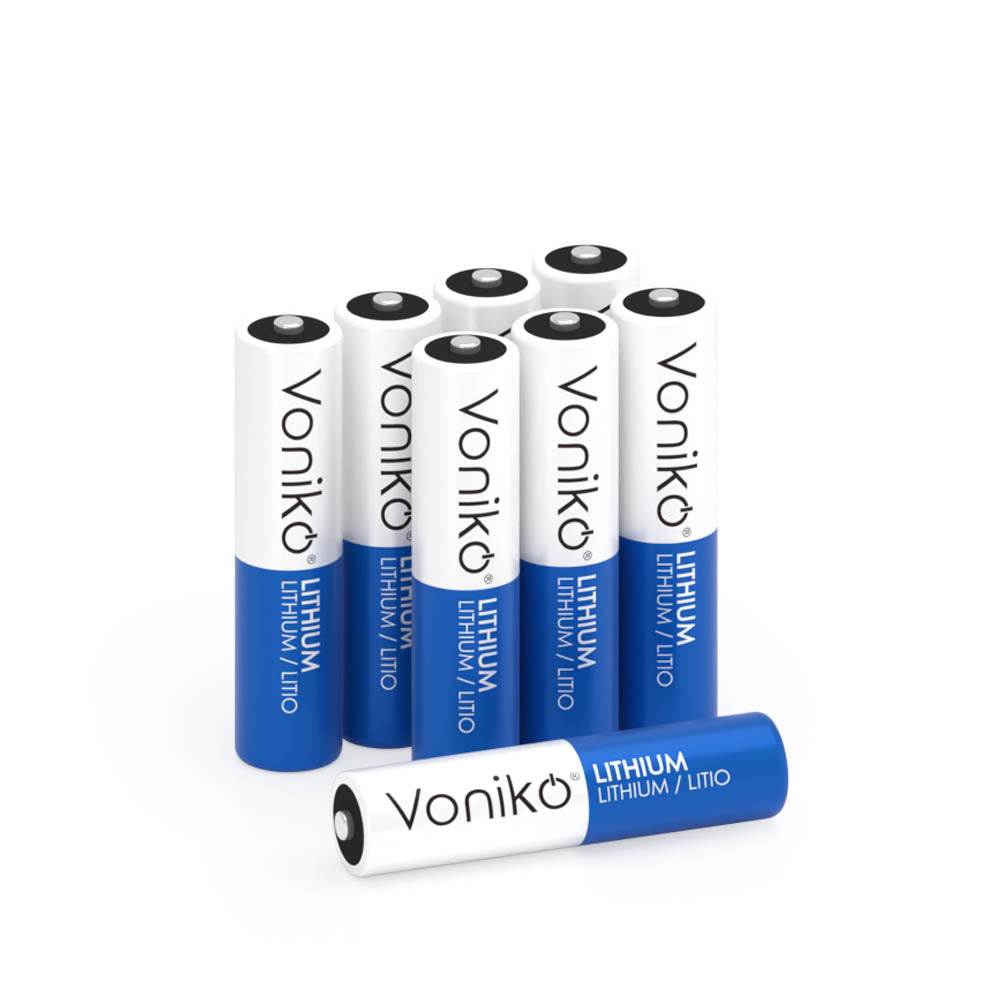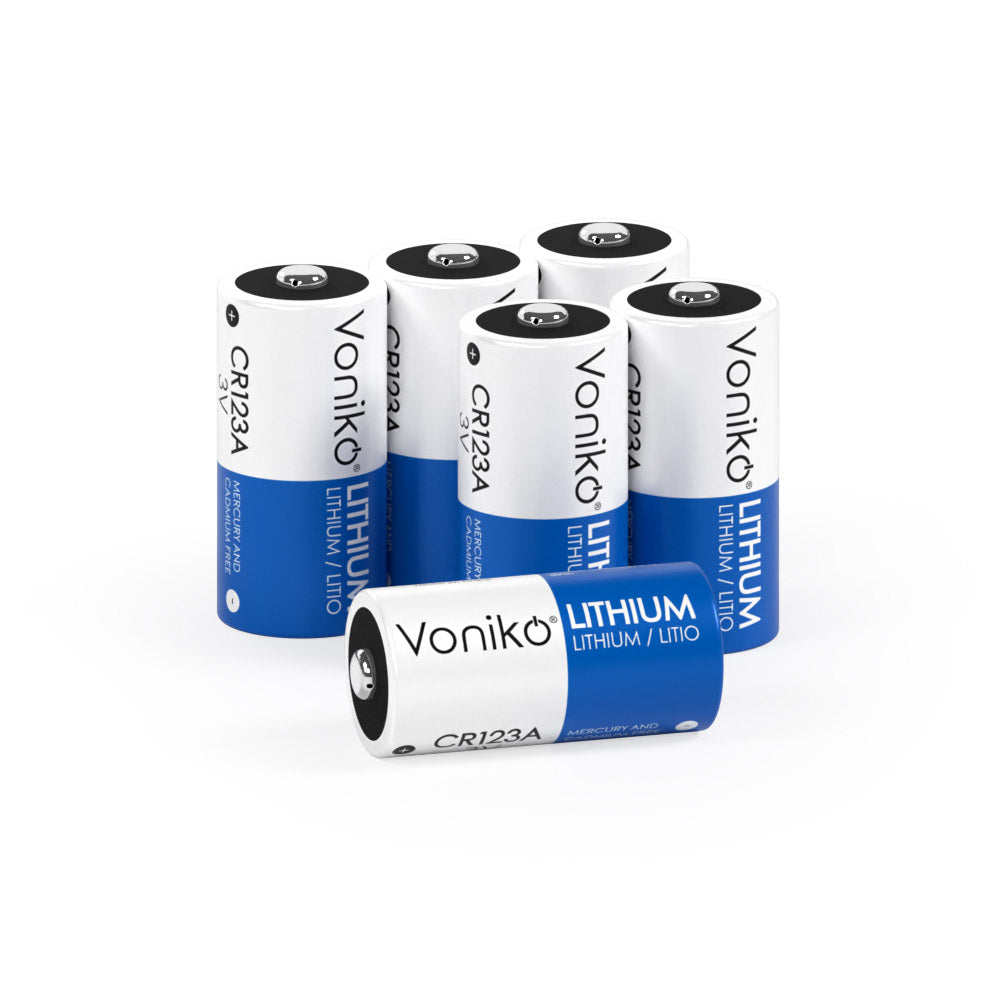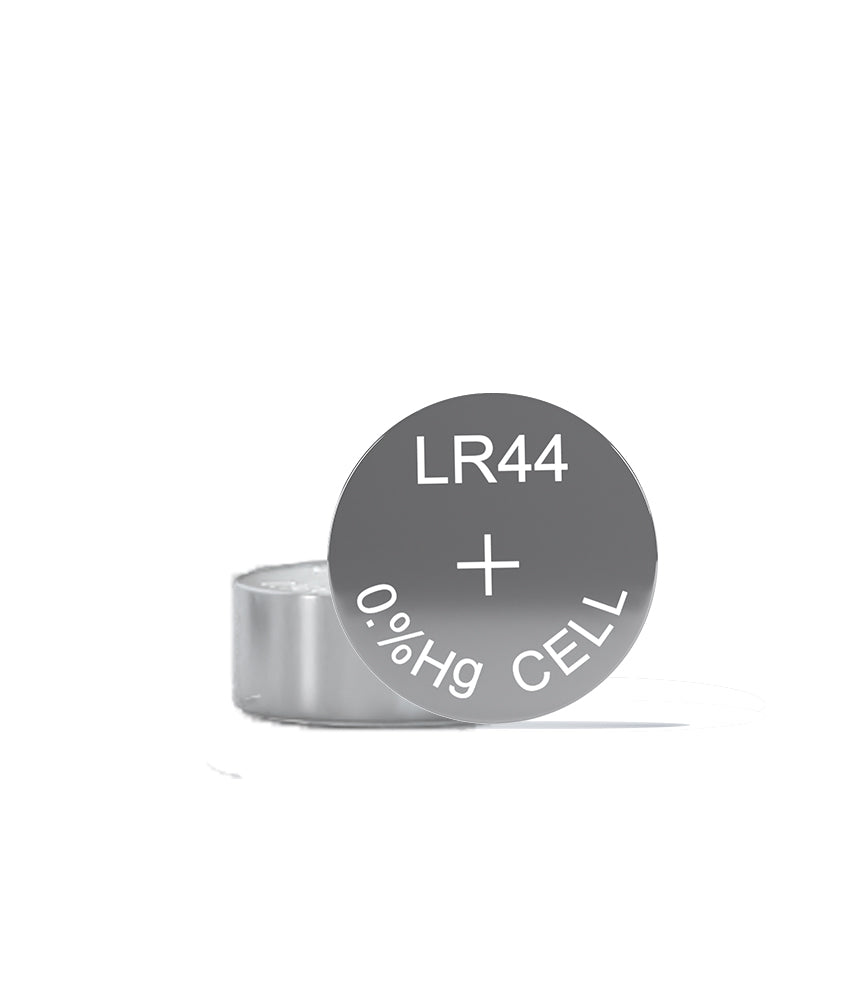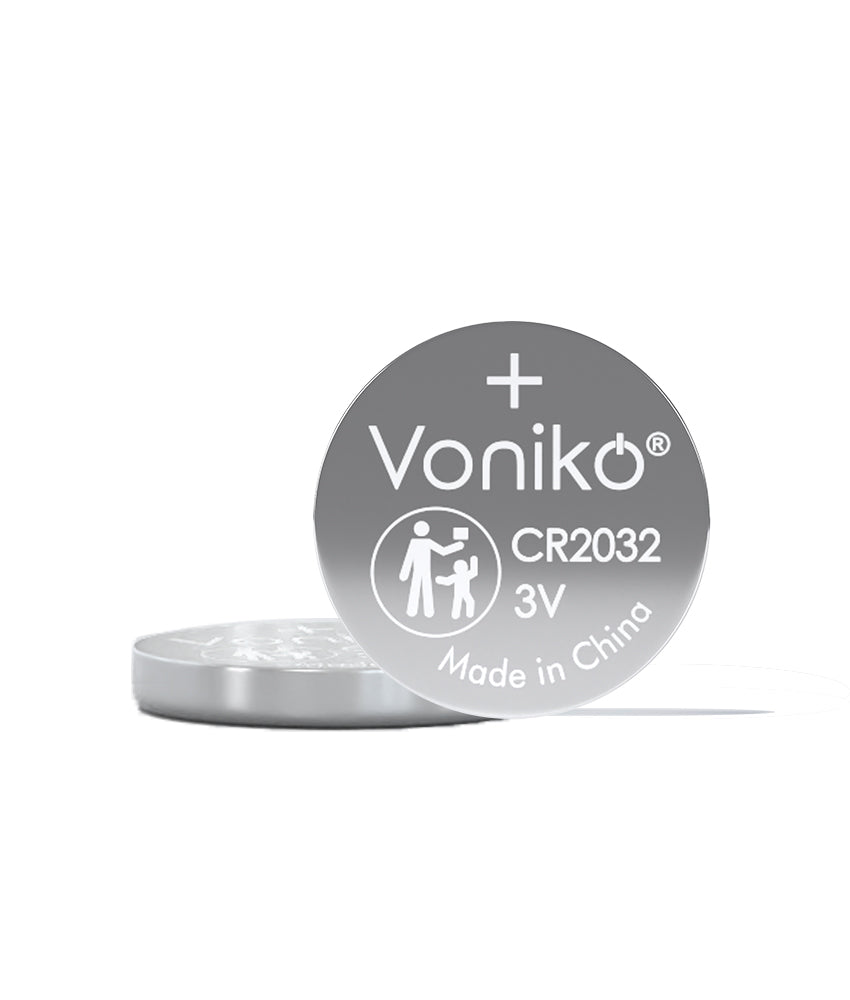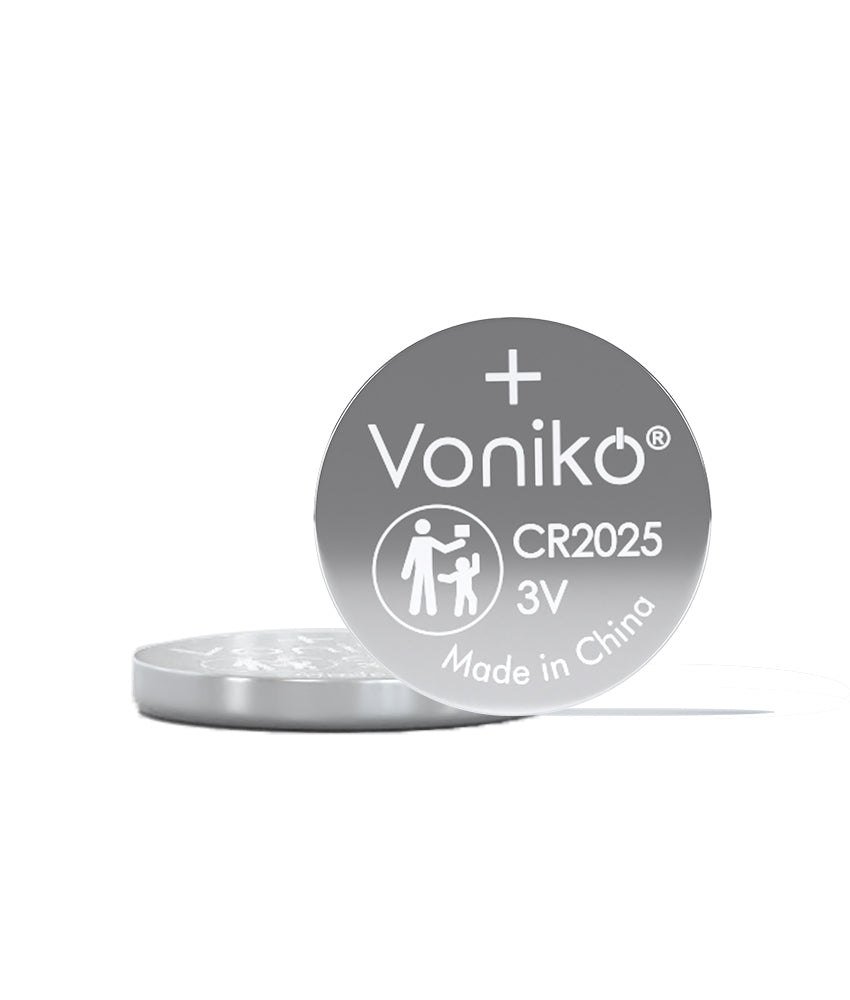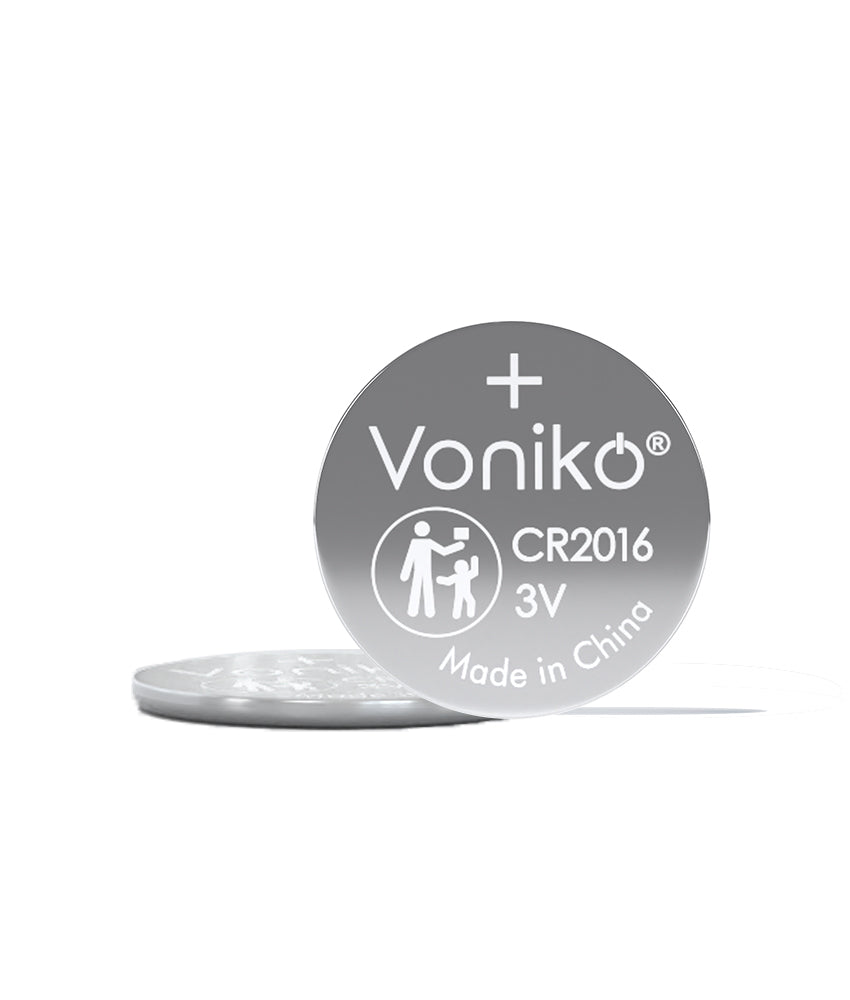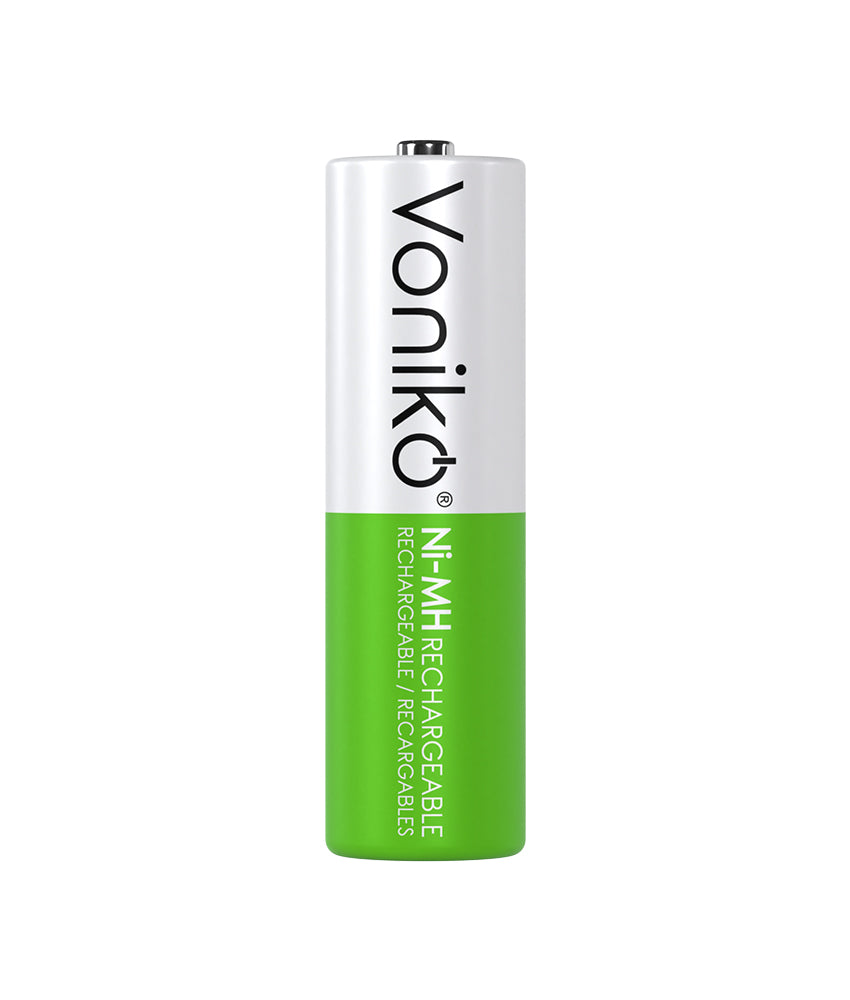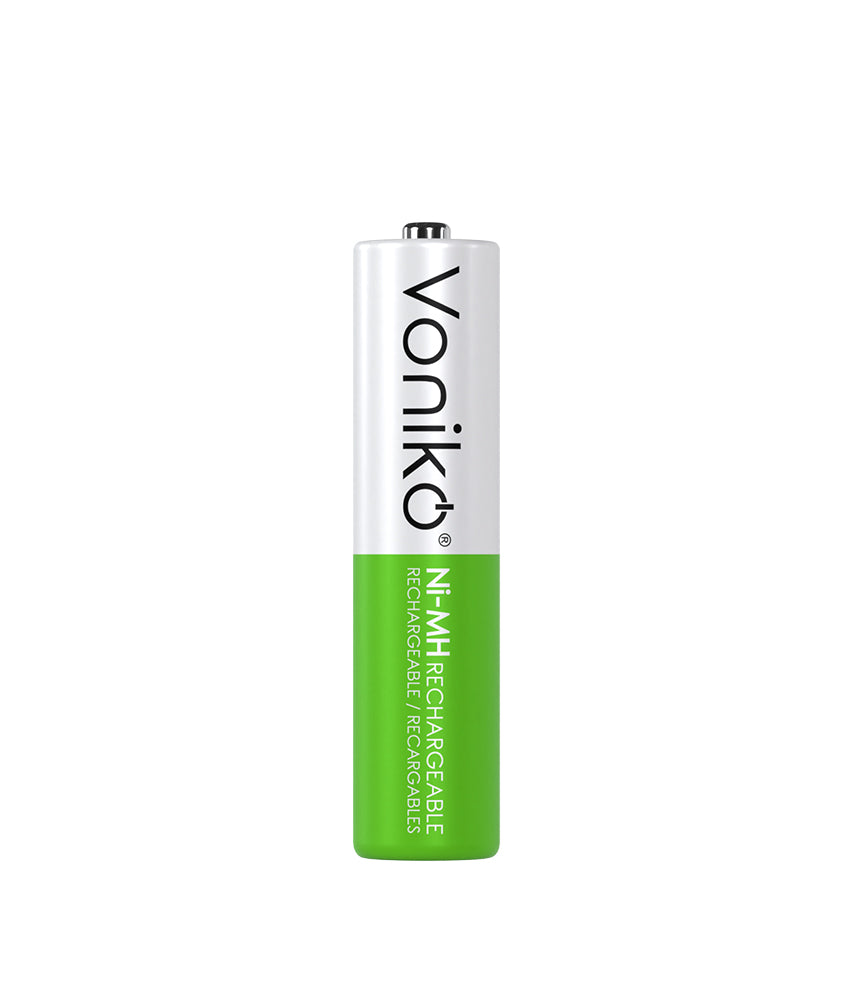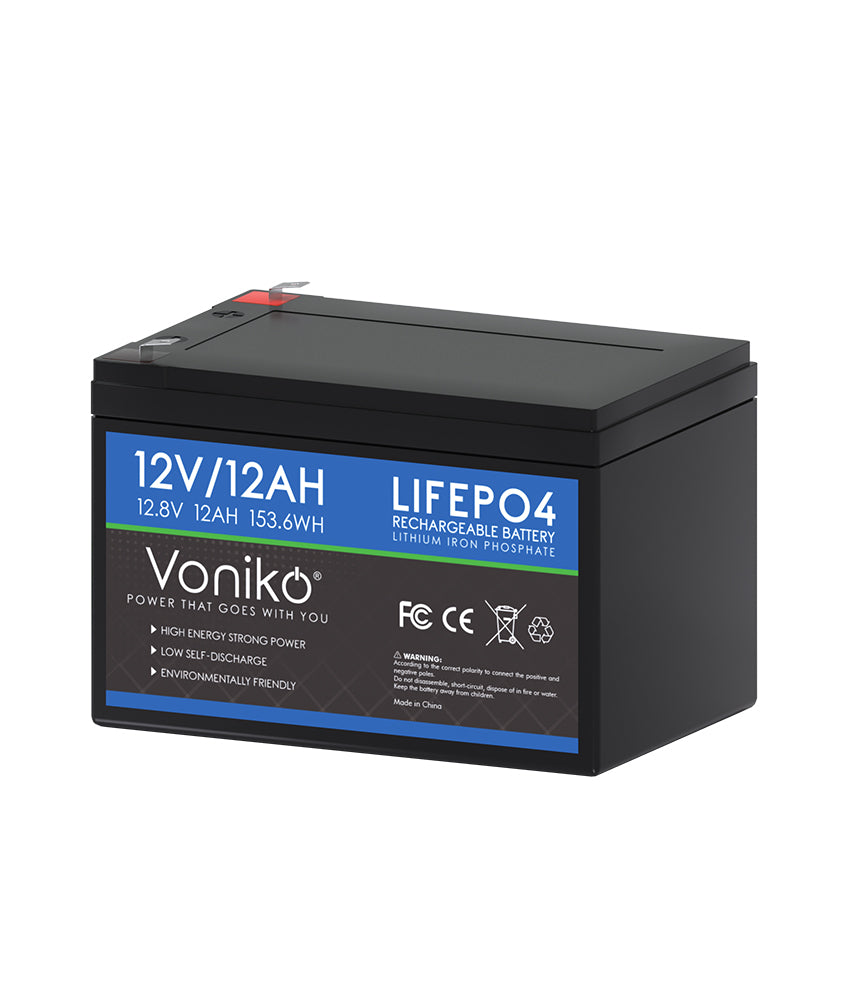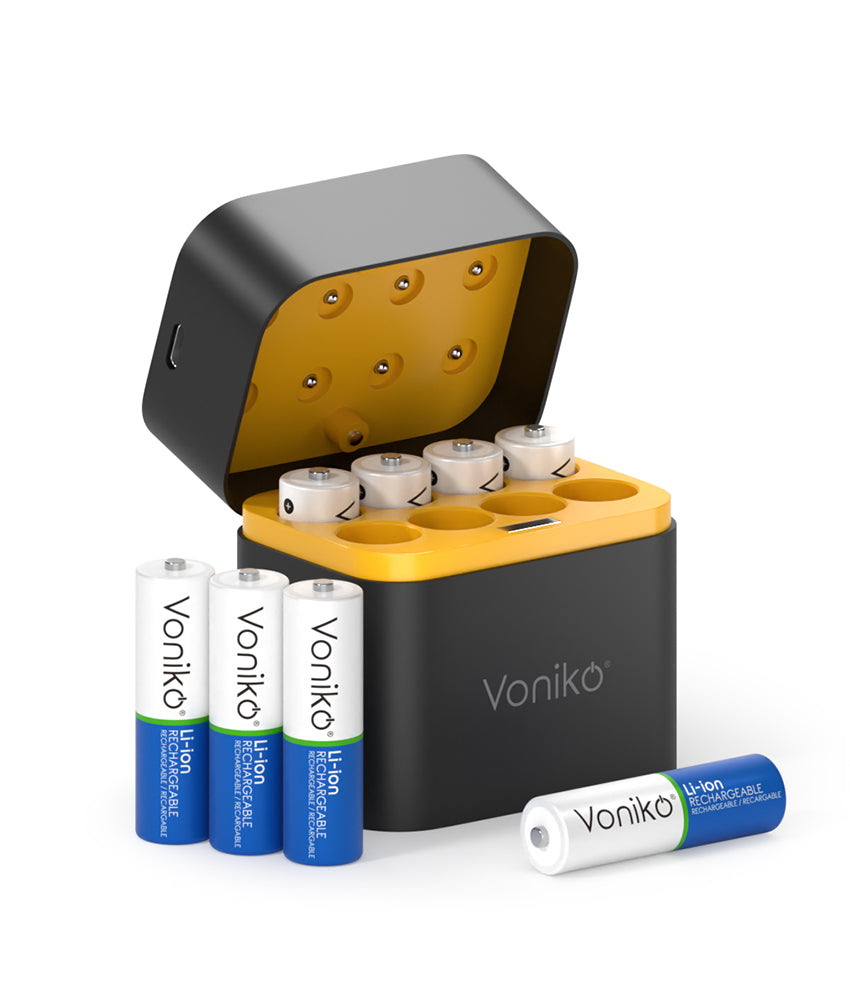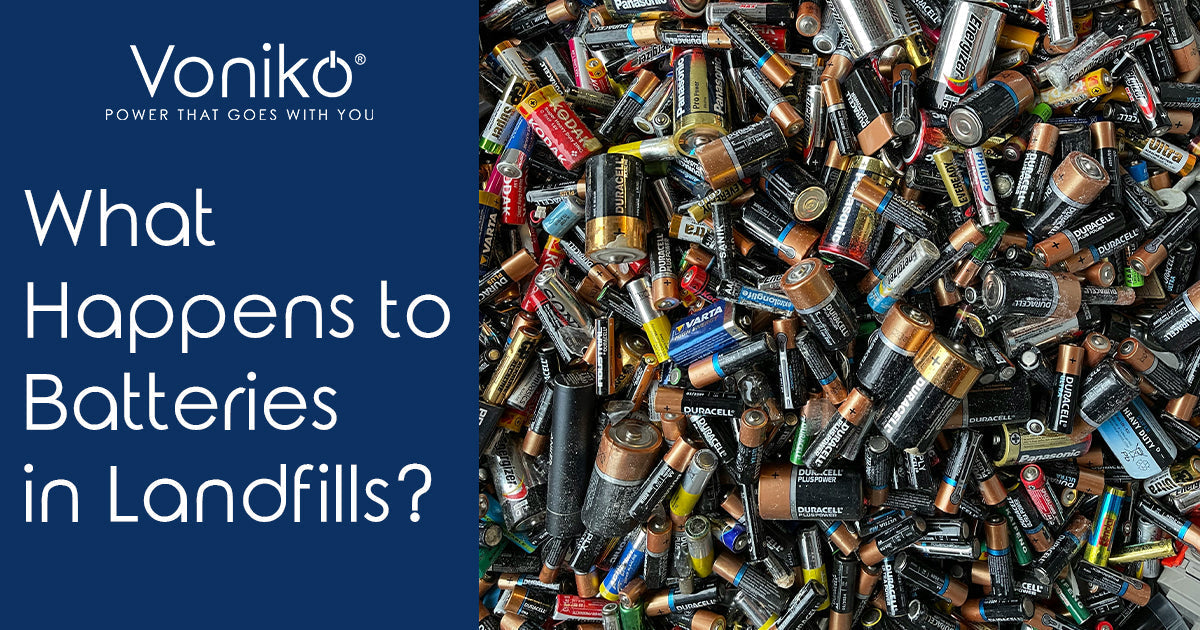Okay, so let's talk about what actually goes into a Voniko battery. It's not just a bunch of chemicals thrown together, you know? They use high-purity zinc and manganese dioxide, which is pretty standard these days for long life and decent power. But the specifics matter. Voniko uses a mix of lithium compounds for the electrodes, plus some polymers and metals for the casing and internal structure. The exact recipe is a trade secret, but they emphasize using high-purity materials to boost performance and lifespan.
Environmental Impact of Battery Materials
Now, here's the thing: making batteries isn't exactly a green process. Mining lithium and other raw materials can mess up ecosystems, and the manufacturing process uses energy and creates waste. Voniko claims to be working on reducing their footprint by sourcing materials responsibly and minimizing waste during production. They also highlight the RoHS certification, which restricts the use of hazardous substances like lead and mercury. It's a step in the right direction, but there's always room for improvement. Here's a quick rundown of potential impacts:
- Mining: Habitat destruction, water pollution.
- Manufacturing: Energy consumption, chemical waste.
- Disposal: Landfill contamination, potential for recycling.
Comparison with Competitor Materials
So, how does Voniko stack up against the competition? Well, most major brands use similar lithium-ion technology. The real differences come down to the quality of the materials and the manufacturing processes. Some cheaper brands might cut corners by using lower-grade materials, which can affect performance and lifespan. Duracell, Panasonic, and Energizer are big players, and they all have their own approaches. For example, Panasonic batteries are known for their long shelf life. Voniko aims to balance performance, cost, and environmental impact. Here's a quick comparison table:
| Brand | Material Focus | Environmental Claims |
|---|---|---|
| Voniko | High-purity Zn compounds, RoHS compliant | Responsible sourcing, reduced waste |
| Duracell | Optimized alkaline formulations | Recycling programs, reduced packaging |
| Panasonic | Long-lasting materials | Focus on energy efficiency in manufacturing |
| Energizer | Recycled materials in some products | Partnerships for battery collection and recycling |
Ultimately, it's about doing your research and choosing a brand that aligns with your values. Don't just go for the cheapest option; think about the long-term impact. Also, consider battery recycling programs to minimize environmental harm.
RoHS Certification and Its Importance
What Is RoHS Certification?
RoHS, which stands for Restriction of Hazardous Substances, is a directive from the European Union that limits the use of certain dangerous materials found in electrical and electronic products. Think of it as a way to make sure our gadgets aren't full of stuff that's bad for us and the environment. The goal is to reduce the amount of hazardous waste that ends up in landfills and to protect people from exposure to these substances. RoHS restricts things like lead, mercury, cadmium, and other heavy metals. It's a big deal because it forces manufacturers to find safer alternatives, pushing innovation in materials science and product design. It's not just about being green; it's about making products safer for everyone.
How Voniko Meets RoHS Standards
Voniko takes RoHS compliance seriously. They've redesigned their battery manufacturing processes to eliminate or minimize the use of restricted substances. This involves careful selection of raw materials, rigorous testing, and continuous monitoring of their supply chain. Voniko isn't just meeting the minimum requirements; they're actively seeking ways to exceed them. They invest in research and development to find even better, more environmentally friendly materials. This commitment not only ensures that their batteries are safe for consumers but also reduces their environmental footprint. It's a win-win situation. Plus, being RoHS compliant opens doors to selling their products in Europe and other markets that adhere to these standards. It's a smart business move, too.
Comparison with Non-RoHS Brands
When you compare Voniko batteries to brands that don't adhere to RoHS standards, the differences can be pretty stark. Non-RoHS batteries might contain higher levels of hazardous materials, which can pose risks during disposal and recycling. These materials can leach into the soil and water, causing pollution and potentially harming wildlife and human health. Voniko's commitment to RoHS compliance means their batteries are generally safer and more environmentally responsible. While non-RoHS batteries might sometimes be cheaper upfront, the long-term environmental and health costs can be significant. Choosing RoHS-compliant brands like Voniko is a way to support more sustainable and responsible manufacturing practices. Plus, it gives you peace of mind knowing you're not contributing to the environmental pollution caused by hazardous materials. It's a small choice that can make a big difference.
Battery Longevity and Environmental Impact
Average Lifespan of Voniko Batteries
Okay, so let's talk about how long Voniko batteries actually last. It's a big deal, right? Nobody wants a battery that dies after, like, five minutes. Voniko claims their batteries have a pretty decent lifespan, but what does that really mean? Well, it depends on what you're using them for. A high-drain device, like a digital camera, is going to suck the juice out way faster than, say, a remote control. Voniko batteries are engineered to provide a stable power output over their lifespan, which helps extend the operational time of devices.
To give you a clearer picture, here's a rough estimate:
- Remote Controls: Up to 2 years
- Flashlights: 5-8 hours of continuous use
- Digital Cameras: 200-300 photos
Of course, these are just averages. Your mileage may vary, as they say. But overall, Voniko seems to be holding its own in the longevity department. Plus, if you're planning to stock up, CR123A batteries are known for their long shelf life, lasting about 15 years if stored properly in a cool, dry place.
Impact of Battery Longevity on Waste
Alright, so why does battery life even matter when we're talking about the environment? Simple: the longer a battery lasts, the less often you have to replace it. And the less often you replace it, the fewer batteries end up in landfills. It's all about reducing waste. Think about it – if you're using a battery that dies quickly, you're constantly buying new ones and tossing the old ones. That adds up fast. Voniko's longer-lasting batteries mean less waste, which is a win for the planet. Plus, some batteries can actually regain power if left alone after being fully drained, which is a cool, useful phenomenon.
Here's a quick rundown of why longevity matters:
- Reduced landfill waste
- Lower consumption of raw materials for new batteries
- Decreased transportation emissions from shipping batteries
Comparative Longevity of Other Brands
So, how does Voniko stack up against the competition? That's the million-dollar question, isn't it? Some brands boast about being the
Leak-Free Design and Safety Features
Benefits of Leak-Free Technology
Okay, so let's talk about why leak-free batteries are actually a big deal. I mean, who wants battery acid messing up their stuff? Leak-free technology basically means the battery is designed to keep all that corrosive stuff inside, where it belongs. This is super important for protecting your devices, especially expensive electronics like remote controls, toys, and flashlights. Plus, it's just safer for you and your family. No one wants to deal with battery leakage, it's a pain to clean up and can be dangerous.
Think about it:
- No more ruined gadgets because of battery acid.
- Safer handling, especially for kids.
- Less worry about batteries corroding in storage.
Safety Features in Voniko Batteries
Voniko batteries aren't just about being leak-free; they've got other safety features too. They often include things like over-discharge protection and short-circuit prevention. Over-discharge protection helps prevent the battery from being completely drained, which can cause damage and reduce its lifespan. Short-circuit prevention is pretty self-explanatory – it stops the battery from overheating or even exploding if there's a short circuit. These features give you some peace of mind, knowing that Voniko batteries are designed with safety in mind. It's like having a little extra insurance for your devices and your safety.
Comparison with Other Brands' Safety Features
When you compare Voniko to other brands, it's clear that not all batteries are created equal when it comes to safety. Some cheaper brands might skip out on these extra safety features to save money, but that can put your devices (and your safety) at risk. Voniko often includes multiple layers of protection, while some competitors might only focus on the bare minimum. Here's a quick comparison:
| Feature | Voniko Batteries | Cheaper Alternatives |
|---|---|---|
| Leak-Free Design | Yes | Sometimes |
| Over-Discharge Prot. | Yes | No |
| Short-Circuit Prevent. | Yes | Sometimes |
It's worth spending a little extra for battery safety features and the peace of mind that comes with it. You don't want to end up with a corroded mess or, worse, a dangerous situation. Plus, safer batteries usually last longer, which is better for the environment and your wallet in the long run. Always check the packaging and product details to see what safety features are included. Don't just assume all batteries are the same – do your research and choose wisely. Considering consumer environmental awareness is also important.
Performance in Extreme Conditions

Temperature Range of Voniko Batteries
Voniko batteries are engineered to maintain consistent performance across a wide range of temperatures. This is super important because, you know, not all batteries hold up when it gets really hot or freezing cold. Voniko lithium batteries typically operate efficiently from -4°F to 140°F (-20°C to 60°C). This makes them suitable for various applications, whether you're using them in outdoor gadgets during winter or in devices exposed to summer heat. I remember one time my old batteries died on a camping trip because it was too cold! Never again.
Impact of Performance on Environmental Safety
When batteries don't perform well in extreme conditions, it can lead to some serious environmental issues. For example, if a battery leaks due to high temperatures, it can release harmful chemicals into the soil and water. Similarly, if a battery fails in cold weather, people might just toss it, adding to electronic waste. Voniko's stable performance helps prevent these scenarios. By maintaining their integrity and functionality, they reduce the risk of leaks and premature disposal. Plus, a reliable battery means fewer replacements, which cuts down on the overall environmental impact. It's all connected, right? Think about the environmental impact of battery materials.
Comparison with Competitors in Extreme Conditions
Compared to some other brands, Voniko batteries often show superior performance in extreme conditions. Some cheaper batteries might lose power quickly or even fail completely when exposed to high or low temperatures. Here's a quick comparison:
- Voniko: Maintains consistent power output and structural integrity within a wide temperature range.
- Brand X: Loses significant power output in temperatures below 32°F (0°C).
- Brand Y: Prone to leakage in temperatures above 100°F (38°C).
- Brand Z: Unreliable performance in both very hot and very cold conditions.
This table shows how Voniko stacks up. It's not just about lasting longer; it's about staying safe and reliable, no matter the weather. I've seen some customer reviews that talk about this.
| Brand | Cold Performance | Heat Performance | Leakage Risk |
|---|---|---|---|
| Voniko | Excellent | Excellent | Low |
| Brand X | Poor | Good | Low |
| Brand Y | Good | Poor | Moderate |
| Brand Z | Poor | Poor | High |
Consumer Feedback and Environmental Awareness
Customer Reviews on Voniko Batteries
So, what are people actually saying about Voniko batteries? Well, it's a mixed bag, like with most products. You'll find some folks who swear by them, praising their long life and reliability. Then you've got others who've had issues with leakage or batteries dying sooner than expected. It's really important to dig into the reviews and see what the common threads are. Are there recurring complaints about a specific type of device? Or maybe a particular batch of batteries? That kind of info can be super helpful. I always check multiple sources, not just the company's website, to get a balanced view. Sites like Amazon or even smaller tech blogs often have more candid opinions. Don't just look at the star rating; read the actual comments. People often give details about how they use the batteries, which can give you a better sense of whether they're a good fit for your needs. You can even submit feedback on products you have used.
Consumer Awareness of Environmental Impact
I think more and more people are starting to think about the environmental impact of their batteries. It's not just about saving a few bucks anymore; it's about reducing waste and choosing products that are better for the planet. You see a lot of companies now advertising their "green" initiatives, but it's important to look past the marketing and see what they're actually doing. Are they using recycled materials? Do they have a take-back program for old batteries? Are they transparent about their manufacturing processes? These are the kinds of questions we should be asking. I've noticed a lot more discussion online about battery disposal and the importance of recycling. People are sharing tips on how to properly dispose of batteries and are calling out companies that aren't doing their part. It's a good sign that consumers are becoming more aware and are holding companies accountable. It's also worth checking out if the company has a customer review section.
Comparative Consumer Sentiment on Other Brands
When you start comparing Voniko to other brands, you'll see that consumer sentiment varies quite a bit. Some brands have a loyal following because they've been around for a long time and have a reputation for reliability. Others are newer to the market and are trying to win over customers with innovative features or lower prices. It really depends on what you're looking for. For example, some people might be willing to pay a premium for a brand that's known for its long-lasting batteries, while others might prefer a cheaper option, even if it means replacing them more often. It's also interesting to see how different brands are perceived in terms of their environmental efforts. Some companies are actively promoting their sustainability initiatives, while others are lagging behind. Consumer sentiment can be heavily influenced by these factors. I've seen some pretty heated debates online about which brands are truly committed to being environmentally friendly and which ones are just greenwashing. Ultimately, it comes down to doing your research and deciding what's most important to you. Don't be afraid to check out sponsored ads to see what other brands are offering.
Cost-Effectiveness and Environmental Considerations
Price Comparison with Other Brands
Okay, so let's talk money and the planet. When you're standing in the store, staring at a wall of batteries, the price tag is usually the first thing that jumps out. Voniko batteries might seem a bit pricier upfront compared to some of the budget brands. But it's important to look at the bigger picture. Those super-cheap batteries? They might save you a few bucks initially, but how long do they actually last? And what's the real cost to the environment when you're tossing them out every other week? We need to consider the battery price and its impact.
Long-Term Cost Savings of Voniko Batteries
This is where Voniko tries to shine. The idea is that because they last longer, you end up buying fewer batteries over time. Think of it like this: a cheap battery might power your remote for a month, while a Voniko keeps it going for six. Over a year, you've bought twelve cheapies versus just two Vonikos. Plus, there's less waste. It's not just about the money in your wallet; it's about reducing your environmental footprint. It's a win-win, at least in theory. Here's a quick example:
| Battery Type | Price per Battery | Lifespan (Months) | Batteries Needed per Year | Total Annual Cost |
|---|---|---|---|---|
| Cheap Brand | $1.00 | 1 | 12 | $12.00 |
| Voniko | $2.50 | 6 | 2 | $5.00 |
Environmental Cost of Cheaper Alternatives
Now, let's get real about those cheaper batteries. Sure, they're easy on the wallet at first, but what about all that extra waste? All those dead batteries end up in landfills, and that's not good news. They can leak nasty chemicals into the ground, which can mess with the soil and water. Plus, the process of making and shipping those batteries also has a carbon impact. Voniko, at least, is trying to play the long game by making batteries that last and reducing the overall environmental burden. It's about making choices that are better for the planet, even if it means spending a little more now.
When thinking about costs and the environment, it’s important to find solutions that save money while also being kind to our planet. Choosing eco-friendly options can help reduce waste and lower energy use, which is good for both your wallet and the Earth. If you want to learn more about how to make smart choices that benefit you and the environment, visit our website today!
Final Thoughts on Voniko Batteries
So, after looking at everything, how do Voniko batteries stack up against the competition? Overall, they seem to hold their own pretty well. They’re designed to last longer and come with some solid safety features, which is a big plus. Plus, the fact that they’re leak-proof and can handle extreme temperatures is a nice touch. When you compare them to other brands, especially those that claim to be eco-friendly but don’t really deliver, Voniko stands out. Sure, there are cheaper options out there, but you might end up spending more in the long run if those batteries don’t last. In the end, if you want a reliable battery that’s also better for the environment, Voniko is definitely worth considering.

